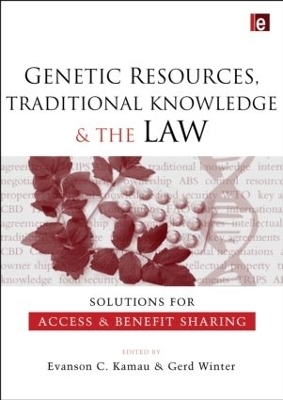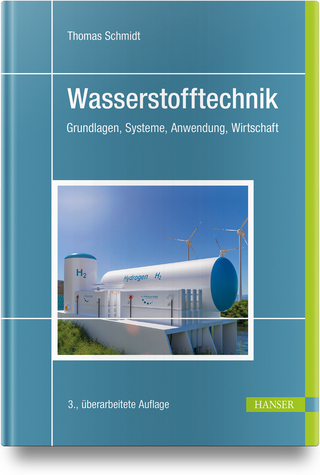
Genetic Resources, Traditional Knowledge and the Law
Earthscan Ltd (Verlag)
978-1-84407-793-9 (ISBN)
The need to regulate access to genetic resources and ensure a fair and equitable sharing of any resulting benefits was at the core of the development of the Convention on Biological Diversity (CBD). The CBD established a series of principles and requirements around access and benefit sharing (ABS) in order to increase transparency and equity in the international flow of genetic resources, yet few countries have been able to effectively implement them and ABS negotiations are often paralysed by differing interests.
This book not only examines these complex challenges, but offers workable, policy-oriented solutions. International contributors cover theoretical approaches, new significant national legislation, the concept of traditional knowledge, provider and user country measures and common solutions. Exploring specific, salient examples from across the globe, the authors provide lessons for national regulation and the ongoing negotiations for an international ABS regime. Uniquely, this book also looks at the potential for 'horizontal' development of ABS law and policy, applying lessons from bilateral approaches to other national contexts.
Evanson C. Kamau is Senior Research Fellow at the Research Centre for European Environmental Law (FEU), University of Bremen, Germany. Gerd Winter is Professor of Public Law and Sociology of Law and Co-Director of FEU, University of Bremen, Germany.
Introduction
Part I: Theorizing on ABS
1. Access to Genetic Resources and Benefit Sharing - Underlying Concepts and the Idea of Justice
2. Towards regional common pools of genetic resources. Improving the effectiveness and justice of access and benefit sharing
3. The Diversity of Principles Underlying the Concept of Benefit-Sharing
4. ABS in Relation to Marine Genetic Resources
Part II: Traditional Knowledge from New Perspectives
5. Potential of Traditional Knowledge for Conventional Therapy: Prospects and Limits
6. Setting Protection of Traditional Knowledge to Rights: Placing Human Rights and Customary Law at the Heart of Traditional Knowledge Governance
7. A Socio-Legal Inquiry into the Protection of Disseminated Traditional Knowledge - Learning From Brazilian Cases
8. Protecting Traditional Knowledge amid Disseminated Knowledge: A New Task for ABS Regimes? A Kenyan Legal View
Part III: Recent Developments in Exemplary Countries
9. The Law Making Process of Access and Benefit Sharing Regulations - The Case of Kenya
10. Brazil's Experience in Implementing its ABS Regime: Suggestions for Reform and the Relationship with the International Treaty on Plan Genetic Resources for Food and Agriculture (ITPGR)
11. Finding a Path through the ABS Maze: Challenges of Regulating Access and Ensuring Fair Benefit-Sharing in South Africa
12. The Process of Legislation on ABS in China: A New Long March
13. The Role of INBio in the Use of Biodiversity for Sustainable Development: Forming Bioprospecting Partnership
14. Australian ABS Law and Administration - A Model Law and Approach?
Part IV: Provider Country Measures
15. Prior Informed Consent in Access to Traditional Knowledge in Brazil
16. Design and Functions of Data Bases on Traditional Knowledge: The case of Venezuela
17. Biopiracy or Fallacy? Identifying Real Biopiracy Cases in Ecuador
18. Sharing the Benefits of Using Traditionally Cultured Genetic Resources Fairly
19. Streamlining Access Procedures and Standards
20. Capacity Development in a Changing World: Three Years of the ABS Capacity Development Initiative for Africa - achievements and Perspectives
Part V: User Countries Measures
21. Disclosure Requirement: A Critical Appraisal
22. Enforcement of Benefit Sharing Duties in User Countries' Courts
23. Enforcement of ABS Agreements in User States
Annex 1: Australian Model Access and Benefit Sharing Agreement
Annex 2: Japan's Penal Code
22. Enforcement of ABS Agreements in User States
23. ABS Guidelines of Research Foundations
Part VI: Common Pools
24. The ABS Regime of the Itpgrfa and Other Emerging ABS Issues at Fao: Lessons for the CBD
25. The ABS Regime of Botanical Gardens: The Case of RBG Kew. Lessons for the CBD
26. ABS in Relation to Marine Genetic Resources
27. Towards Regional Common Pools of Genetic Resources. Improving the Effectiveness and Justice of Access and Benefit Sharing
| Erscheint lt. Verlag | 19.8.2009 |
|---|---|
| Verlagsort | London |
| Sprache | englisch |
| Maße | 156 x 234 mm |
| Gewicht | 1140 g |
| Themenwelt | Naturwissenschaften ► Biologie ► Ökologie / Naturschutz |
| Recht / Steuern ► Allgemeines / Lexika | |
| Recht / Steuern ► EU / Internationales Recht | |
| Recht / Steuern ► Wirtschaftsrecht ► Urheberrecht | |
| Technik ► Umwelttechnik / Biotechnologie | |
| ISBN-10 | 1-84407-793-4 / 1844077934 |
| ISBN-13 | 978-1-84407-793-9 / 9781844077939 |
| Zustand | Neuware |
| Informationen gemäß Produktsicherheitsverordnung (GPSR) | |
| Haben Sie eine Frage zum Produkt? |
aus dem Bereich


